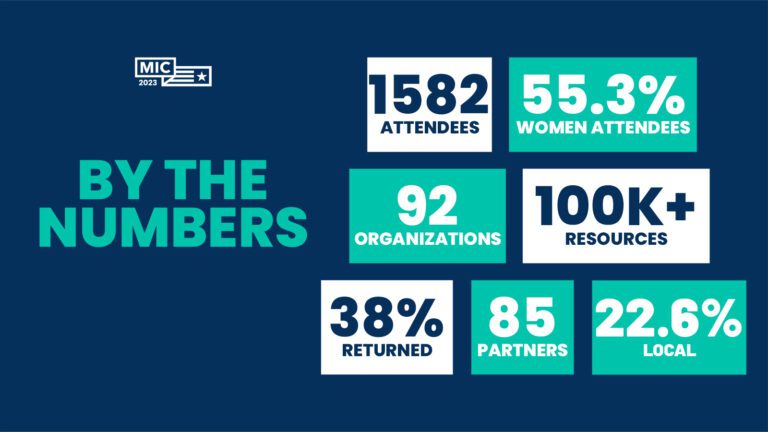

Startup, Franchise, or Existing business
- by
“Your experience in the military influences the business you want to start. People will be what they can see. Entrepreneurship can seem unattainable if you don’t see a lot of people doing it,” Hogan said. “The Military Influencer Conference is so important because it shows that entrepreneurship is a viable option. Here’s people who have done it and are willing to show you the way.”
For military entrepreneurs considering a startup business:
The most important thing is for veterans to consider their objectives and the business that will work best for their post-military lifestyle. As Hogan puts it, “There’s a big difference between enjoying baking cakes and owning a bakery.” The first step is to come up with honest answers to these questions:
- How much do I need to add to my bank account to survive?
- Is this something I really enjoy doing or is it a hobby?
- Do I want to commit to a brick and mortar where I show up every day?
- Do I want to work from home?
- Have I considered a high-growth company with stakeholders and investors that I may not control?
- Am I looking for something locally that my family can control?
Hogan said the next step is to focus on getting your idea to the customer.
“Build the cheapest ugliest thing you can and get someone to give you money for it before you decide to move forward,” he said. “If there is a problem and you are providing a solution, then someone is going to pay you. It’s all about customers and feedback.”
The feedback loop means that a business plan will need constant adjustments, especially in the beginning.
“The military mindset can work against us: we often think a business concept has to be fully finished and ready to go before we present it to a customer,” Hogan said. “We have to sometimes stop and zoom out. Build a plan, execute the plan, learn from it, then adapt it.”
When developing a business model, Hogan advises not to create everything from scratch. Instead, consider partnering with companies that will be steady, repeated supporters.
“Share a larger platform and be willing to share revenue,” he said.
Pros and cons of a franchise
Buying into a franchise can be a business compromise. Purchasers have the benefit of working for a large company with established procedures and products, while managing their location independently. However, there are limits to a franchise owner’s ability to grow, since they can typically only manage one location.
Hogan said veterans can be successful franchise managers, but it all comes down to personality.
“Franchises are a great way for people to get into business. If you just want someone to give you the book so you can follow through, you’ll do well,” he said. “The negative is that you are operating something, but you aren’t in charge of it. Are you willing to run someone else’s company? It’s important to self-reflect and know your own personality. Does the franchise align with your personal ambitions?”
He also recommends studying the numbers before buying into a franchise. The initial franchise fee is a large investment, but there are numerous resources to help veterans and military spouses get started.
“When leaving the military, many veterans don’t have great savings or credit, so franchises are willing to work with you” Hogan said. “There may be veteran incentives through the company like a franchise fee discount, or you can do the financing through them. But be careful—if it sounds too good to be true, then it probably is.”
One useful resource is VetFran (Veteran Franchise), founded by an Air Force veteran. This organization helps educate veterans and facilitate their entry into franchising.
Should you focus exclusively on your business?
“Keep your day job until it’s no longer tenable to do so because your business is growing so much,” Hogan said. “The ‘burn the ships’ mentality of going all in can be difficult to do when you have a family and mortgage or an upcoming [permanent change of station]. Make sure your family is on board or you’re setting yourself up for failure.”
According to Hogan, veterans shouldn’t rush to jump into new businesses.
“As long as you are getting your job done and being honest, then you can grow your business at home and on the side,” he said “I kept my corporate job the entire time I was doing a startup company, and thank goodness I did because I was able to pay off debt.”
provide a network entry point to that group, provide resources to partners who connect you with capital Visit https://bunkerlabs.org for more information.
About Bunker Labs
Bunker Labs helps the military community fulfill entrepreneurial dreams by plugging veterans and military spouses into a local entrepreneurial network through Bunker Connect.
“Entrepreneurship can feel like something reserved for a gifted few,” said Todd Connor, co-founder of Bunker Labs. “If you have a specific problem or opportunity that you uniquely understand and are uniquely passionate about, and are willing to put in the work, then you can bring an idea to life. Focus on the problem / solution and the business will follow.”
BunkerLabs is in the process of launching a Capital Access Strategy, to:
- de-mystify the process of how to access capital
- provide a network entry point to that group,
- provide resources to partners who connect you with capital
Visit https://bunkerlabs.org for more information.
YOU MAY ALSO LIKE
MIC Updates

Behind The Numbers Of MIC 2023














